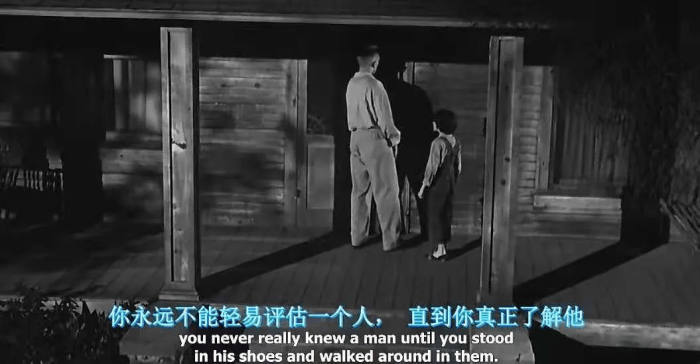Quotes about empathy in to kill a mockingbird – “To Kill a Mockingbird” is a powerful novel that explores the complexities of human nature through the lens of empathy. Harper Lee’s timeless masterpiece delves into the transformative power of understanding and compassion, offering profound insights into the human condition.
The novel’s characters, particularly Atticus and Scout Finch, serve as beacons of empathy, demonstrating the profound impact it can have on our interactions, decisions, and overall journey through life.
Empathy in To Kill a Mockingbird: The Power of Perspective: Quotes About Empathy In To Kill A Mockingbird

Empathy plays a pivotal role in Harper Lee’s classic novel “To Kill a Mockingbird.” It allows characters to transcend their own experiences and understand the perspectives of others, shaping their understanding of events and influencing their actions.
Different Characters’ Perspectives
The novel presents a diverse cast of characters with distinct perspectives. Atticus Finch, a respected lawyer, embodies empathy and believes in the inherent dignity of all individuals. His daughter, Scout, possesses a childlike innocence that enables her to see the world with an unbiased lens.
In contrast, Bob Ewell represents the dangers of a lack of empathy, leading him to harbor deep-seated prejudice and commit heinous acts.
Empathy and Character Development
Empathy drives character development throughout the novel. Scout’s interactions with Boo Radley, a recluse who is unjustly feared, challenge her preconceptions and foster her compassion. Atticus’s unwavering belief in Tom Robinson’s innocence despite overwhelming evidence to the contrary demonstrates his profound empathy and commitment to justice.
Overcoming Prejudice
Empathy is essential for overcoming the prejudices prevalent in the novel’s setting. When Scout and Jem learn about the history of the Ewell family, they develop a newfound understanding of their poverty and the reasons behind their resentment. This empathy enables them to challenge the societal norms that perpetuate injustice.
Atticus Finch: A Model of Empathy

Atticus Finch stands as a beacon of empathy in the novel. His unwavering belief in human dignity guides his interactions with all individuals, regardless of their race, class, or social status.
Unwavering Belief in Human Dignity
Atticus’s empathy stems from his deep-seated belief in the inherent worth of all human beings. He treats everyone with respect and compassion, even those who are prejudiced or hostile towards him. His belief in Tom Robinson’s innocence is a testament to his unwavering faith in human goodness.
Impact on Others
Atticus’s empathy has a profound impact on the lives of others. He inspires Scout and Jem to embrace compassion and challenge injustice. His unwavering support for Tom Robinson, despite the overwhelming odds, sets an example of courage and resilience. Atticus’s empathy creates a ripple effect, fostering a sense of hope and possibility in the face of adversity.
Scout Finch: A Child’s Perspective on Empathy
Scout Finch’s youthful innocence allows her to see the world with an unbiased lens, fostering her empathy and understanding of others.
Childlike Innocence
Scout’s childlike perspective enables her to approach the world with an open mind and a willingness to learn. She is not yet burdened by societal prejudices or preconceived notions, allowing her to see the humanity in everyone she encounters.
Interactions with Others
Scout’s interactions with various characters, including Boo Radley, Miss Maudie Atkinson, and her father, Atticus, broaden her understanding of different perspectives. She learns about the complexities of human nature and the importance of compassion.
Journey to Adulthood
As Scout navigates the complexities of the adult world, her empathy shapes her journey. She faces prejudice and injustice but maintains her belief in the inherent goodness of others. Scout’s empathy serves as a guiding light, helping her to navigate the challenges of adulthood with compassion and understanding.
The Role of Empathy in Overcoming Prejudice

Empathy plays a crucial role in challenging the prejudices and biases prevalent in “To Kill a Mockingbird.” It allows characters to transcend their own experiences and understand the perspectives of others, leading to greater understanding and compassion.
Challenging Prejudices
When characters develop empathy for those they previously held prejudice against, their perspectives shift. For example, Scout’s interactions with Boo Radley challenge her preconceived notions about him, leading her to recognize his humanity and innocence.
Greater Understanding and Compassion
Empathy fosters greater understanding and compassion between individuals. As characters empathize with others, they develop a deeper understanding of their experiences and motivations. This empathy creates a foundation for more tolerant and inclusive communities.
Message of Tolerance and Acceptance
The novel’s message of tolerance and acceptance is intricately intertwined with the power of empathy. By highlighting the transformative nature of empathy, “To Kill a Mockingbird” encourages readers to challenge their own biases and embrace a more compassionate and understanding worldview.
The Dangers of Lacking Empathy

The novel also explores the consequences of lacking empathy. Characters who are unable or unwilling to empathize with others often make decisions that are harmful and unjust.
Consequences of Lacking Empathy
Bob Ewell, a prime example of a character lacking empathy, is driven by prejudice and hatred. His inability to empathize with Tom Robinson leads him to commit heinous acts, including falsely accusing Tom of rape and murdering him in cold blood.
Prejudice, Injustice, and Social Divisions
A lack of empathy can lead to prejudice, injustice, and social divisions. When individuals fail to understand and care for others, they are more likely to make decisions that are biased and unfair. This can create a cycle of oppression and conflict.
Warning Against Failing to Understand and Care, Quotes about empathy in to kill a mockingbird
“To Kill a Mockingbird” serves as a warning against the dangers of failing to understand and care for others. It highlights the importance of empathy in creating a just and compassionate society.
FAQ Corner
What is the significance of empathy in “To Kill a Mockingbird”?
Empathy is a central theme in the novel, as it allows characters to understand and connect with each other despite their differences. It challenges prejudices, fosters compassion, and ultimately leads to a more just and tolerant society.
How does Atticus Finch demonstrate empathy?
Atticus Finch is a model of empathy. He believes in the inherent dignity of all people, regardless of their race or background. He listens to others with an open mind, seeks to understand their perspectives, and treats everyone with respect.
How does Scout Finch’s youthful innocence contribute to her empathy?
Scout’s youthful innocence allows her to see the world with fresh eyes, free from the prejudices and biases of adults. She is able to empathize with people from all walks of life, regardless of their social status or differences.